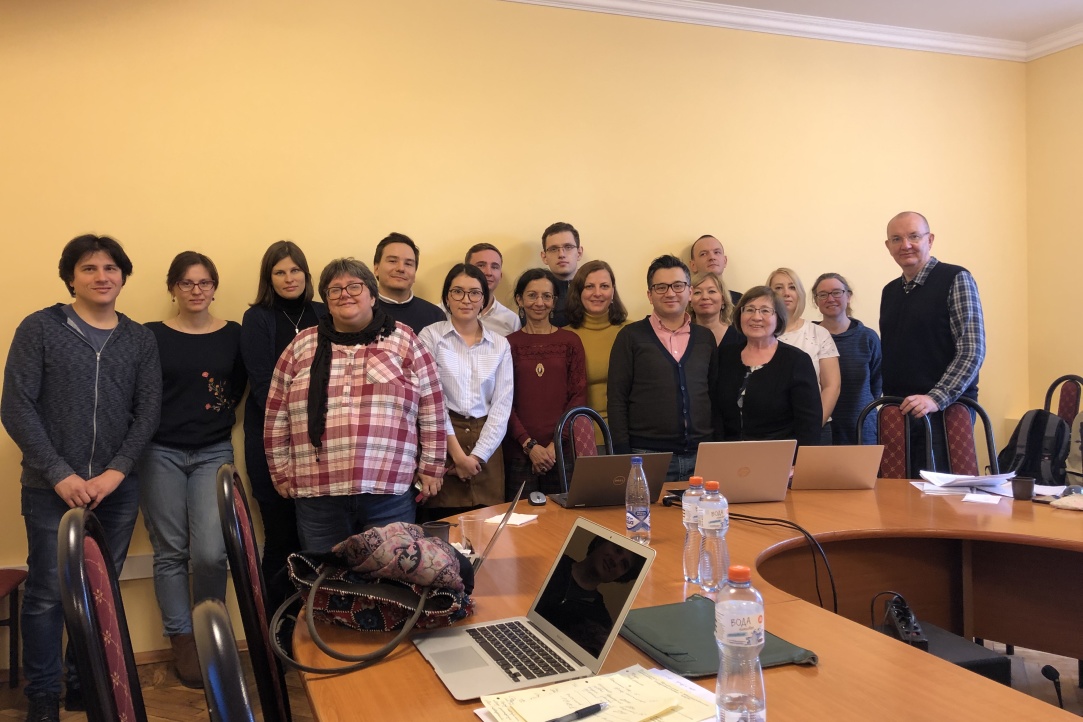International Colloquium "Anthropology of Migration: New Research in Russia" met on March 1-2, 2019
Ekaterina Demintseva (Higher School of Economics Institute of Social Policy), Daniel Kashnitsky (Higher School of Economics Institute of Social Policy), Dmitriy Oparin (MSU, Higher School of Economics Institute of Social Policy) presented their recent researches at the International Colloquium "Anthropology of Migration: New Research in Russia"

Colloquium was organized by the European University at St. Petersburg, the Russian Science Foundation (Projects No. 14-18-02149-P "Transnational and Translocal Aspects of Migration in Modern Russia"; No. 18-18-00293 "The Use and Creation of Urban Infrastructures by Migrants in Siberian Regional Centres"); Institute for Social Policy of National Research University Higher School of Economics (Moscow); and Laboratory for Social and Anthropological Research, National Research Tomsk State University.
The Colloquium was devoted to the study of nonlinear pathways of migration in Russia. Participants presented results of their research projects conducted in 2017-2018. Contributors emphasized the need to consider the diversity of temporal and spatial scenarios, the interconnectedness of different factors that shape the migrants’ plans. Among other things, discussion focused on transnational and translocal perspectives of the migration studies. Another focus was on comparative study of migration in megalopolises and other Russian cities, particularly in Siberia. Contributors considered different models of inclusion and exclusion of migrants in Russian society, and stressed the diversity of pathways for integration into the economy of the host society and building social connections, in addition to describing the different ways of representations of migrants in the host society. Thirdly, discussion focused on analyzing the project of migrating as it is seen migrants and their families. In this connection, the key for understanding the ways in which the migrants see their future were gender and age-related behavior patterns, the open-ended and transient nature of tactics of migration, and the uncertainty of their status.
Program on the link
